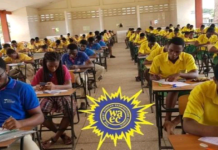
As artificial intelligence-assisted technologies are developing rapidly in areas such as the healthcare sector, university researchers are helping policymakers to identify the gaps and barriers to rapid implementation.
As part of the Association of Pacific Rim Universities’ (APRU) AI for Social Good project, in collaboration with the United Nations Economic and Social Commission for Asia and the Pacific in Bangkok, university-based academics have been working with Thai policymakers to assess gaps and bottlenecks in implementing AI in healthcare.
The academics then support the Thai government in developing policies to help build AI capabilities.
This article is part of a series on Pacific Rim higher education and research issues published by University World News and supported by the Association of Pacific Rim Universities. University World News is solely responsible for the editorial content.
The two-year APRU project funded by Google, which has just ended, “aimed to work with government partners in Asia and the Pacific to grow sound and transparent AI ecosystems that support sustainable development goals”, explained APRU’s chief strategy officer, Christina Schönleber.
Research has already shown that AI can make healthcare more efficient, improve patient outcomes and support medical research. Newer AI such as voice-to-text and generative AI tools for summarising patient data have also proven useful for health workers in the field.
“For Thailand we were looking at barriers and enablers for data sharing for AI healthcare,” explained Jasper Tromp, assistant professor at the National University of Singapore and APRU’s research lead for the project.
“In addition to rigorous research, the Thai partners emphasised the need to be relevant to the Thai people, and they also saw the benefit of researchers coming from different regions, because they could bring knowledge from their own regions,” explained Toni Erskine, professor of international politics at the Australian National University (ANU) in Canberra, who was the research lead for the overall APRU AI for Public Good project.
For artificial intelligence to be useful in countries like Thailand, it is crucial that data can be shared. But many governments are unaware of the specific barriers or enablers for joined up data such as patient data or imaging data for healthcare, Tromp noted.
Limited data availability and varying data storage standards also pose significant challenges to AI development and deployment, the research found.
One of the aims of the APRU project, in collaboration with the Thai Office of National Higher Education Science Research and Innovation Policy Council, was “specifically to inform development of a guideline or protocol to enable data sharing between government institutions, but also between government institutions and private partners, such as companies or universities or external organisations that would use this type of data”, Tromp explained.
AI solutions for Thailand
Thailand is developing its AI capabilities to help bridge gaps in skills and healthcare coverage beyond major cities. But implementing AI-assisted healthcare still has significant hurdles to overcome, and many examples that resolve some of these have been developed in the United States or Europe.
“Many of these AI algorithms are trained in the US or Europe and most of the training data is derived from either white people or African American people and people that do not share the same ethnic background [as Thais], so they might not work as well in the Thai or Asian local context as they do in the context where they’re developed,” said Tromp.
“For both practical as well as economic reasons, Thailand is very eager to develop their own AI industry and apps that can be deployed locally,” he added. In part, this is because some of the AI-driven healthcare systems developed overseas are expensive to acquire and implement. Also, Thailand wants solutions geared to the local context.
Some research work on AI for medical applications has been ongoing within Thailand, with some companies expecting to release them on the market in the near future. “AI has shown a lot of promise in healthcare. It’s being used now in terms of chatbots, and it is being implemented for image recognition,” Tromp said.
What currently exists is fairly general. “But for health records for public health it has to be very high-level data.”
Hurdles identified by research
“The first task was to systematically map these barriers and enablers that have been published by others, for example, in academic literature outside of Thailand, that might influence data sharing, meaningful data collection and quality. And then we tested those barriers locally ]in Thailand],” said Tromp.
He noted that in common with many other countries in the region, in Thailand “people use different software to collect data”. Apart from that, “if you go to lower tiers in health care, such as primary care or they use paper based [patient] records, it means you’re only getting access to data from centres that have capabilities to collect it”.
Fragmented healthcare provision means differences in data architecture, standards and collection, and these hamper interoperability. In Singapore, TRUST, a data-sharing platform run by Singapore’s Ministry of Health and aimed at improving health outcomes, collects all this data together on a single platform.
The platform includes research data ranging from genomics to socio-economic data and sourced from public health institutions, research institutions and public agencies that allow their anonymised data to be made accessible via TRUST for research purposes.
Tromp acknowledged, however, that the Singapore example is an expensive one. Limited resources are a significant barrier, with uneven human, technical and financial resources across healthcare institutions. High costs of hardware and software acquisition, installation, and maintenance can hamper quality data collection and sharing, particularly for smaller clinics and hospitals, the research found.
APRU’s final report on ‘AI for Social Good’ which is about to be released, points to a lack of understanding of “the value of data and the importance of data security and privacy. Health literacy issues and confusion around data-sharing parameters also contribute to the challenges. Additionally, the absence of precise data-sharing regulations and guidelines at the political and policy levels creates uncertainty and hampers progress.”
Tromp also noted that there was reluctance to share data, within government but also outside government, such as in hospitals and others that hold healthcare data. In addition, for many people Thailand’s new Personal Data Protection Act, which began to be enforced in 2022, is unclear on how they are able to share data and in what formats. “It was one of our major findings. We are recommending they develop a protocol for this,” Tromp said.
The project also proposed a regulatory ‘sandbox’ to promote innovation within a protected experimental environment with fewer regulatory constraints, so that relevant government departments can figure out what future regulation is appropriate.
The project noted that “the rise of regulatory sandboxes in the health sector has ensued from the phenomenal increase in digital health adoption in many countries”. It was also a recommendation that was of interest to the Thai government, Tromp said.
Working with policymakers
The research input was valuable, and important in the fast-moving AI environment, Tromp said. “AI has specific challenges for data sharing. Because of the granularity that you request from the data to develop AI, there are very few policy frameworks that address this directly, so it is difficult to copy [from others]. You need new knowledge to inform policy developments.”
International organisations such as the United Nations have good on the ground knowledge but rarely work in knowledge generation, Tromp pointed out. “Healthcare systems face a lot of challenges, such as manpower, that require innovations like AI to strengthen, so there is a niche for universities to add to knowledge generation.”
But working together with Thai officials from the outset was important. “With our Thai partners, we had a number of meetings before we even came up with the final research questions and we had a lot of people in those initial meetings,” ANU’s Erskine explained.
The project also had peer reviewers who commented on the drafts the researchers produced. These included Dr Greg Raymond, an assistant professor at ANU who has worked specifically on Thai politics and was able to speak to the Thai government departments and also provide input about the geopolitical and cultural contexts of Thailand that needed to be considered in the research.
“I think this project did a really good job in bridging the gap” between research and policy, said Tromp. “Working with government to inform research priorities is very replicable – it’s an unmet need in the region.”
University World News













